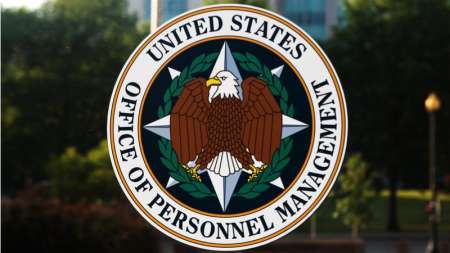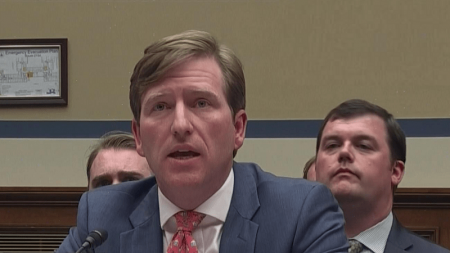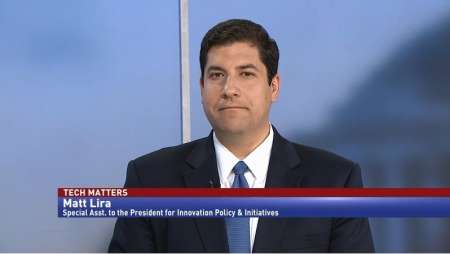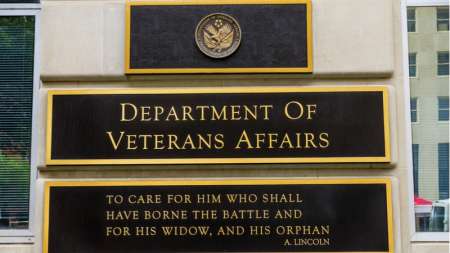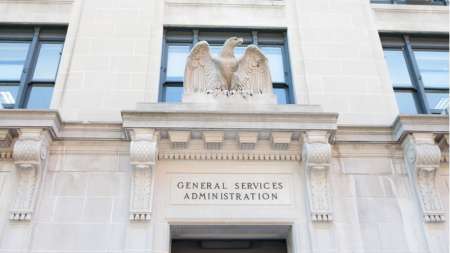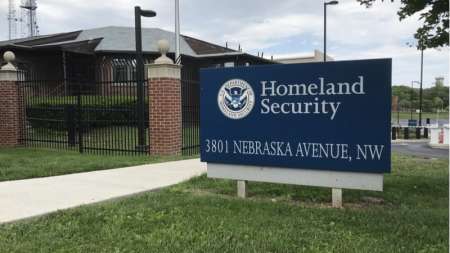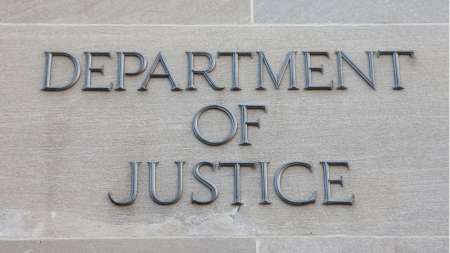The Department of Justice (DoJ) announced today that Romeo Vasile Chita, a Romanian national, was returned to the United States last Friday to face Federal charges of racketeering, wire fraud conspiracy, conspiracy to launder money, and conspiracy to traffic in counterfeit services charges. […]
The Department of Homeland Security’s (DHS) Science and Technology Directorate (S&T) recently founded an artificial intelligence (AI) community of interest (COI) for anyone in DHS with an “interest in the subject.” […]
The Department of Homeland Security’s (DHS) deadline for agencies to adopt Domain-based Message Authentication, Reporting, and Conformance (DMARC) and have policies set to “enforcement” levels is one week away, and new research from Valimail says only half of agencies have deployed the new standards. […]
The White House on Friday announced the appointment of Margaret Weichert as acting director of the Office of Personnel Management (OPM), replacing Jeff Pon at the helm of the agency. […]
A new, stealthy Internet of Things (IoT) botnet has emerged with the capability of stealing information from a wide range of devices, underscoring the need for the Federal government to provide guidance on how agencies can reduce risks associated with the deployment of their IoT networks. […]
Christopher Krebs, Department of Homeland Security under secretary for the National Protection and Programs Directorate (NPPD), said Thursday that NPPD is focusing on the cybersecurity fight of both today and tomorrow, through the various coordinating centers that fall under NPPD’s purview. […]
The U.S. Department of Agriculture today announced the launch of an interactive data tool to display substance abuse data along with other public information, allowing local leaders to “build grassroots strategies to address the opioid epidemic,” the department said in its announcement. […]
Former Department of Homeland Security Secretary Tom Ridge said today that DHS has “become a political piñata” in Washington since his time as the agency’s head, even as the scope of the work and associated challenges have grown across the Department’s vast range of component agencies. […]
The Department of Justice (DoJ) today announced that a grand jury has indicted seven officers, all Russian nationals and residents, in the Russian Main Intelligence Directorate (GRU), a military intelligence agency of the General Staff of the Armed Forces of the Russian Federation. […]
Following the long-awaited passage of the Cybersecurity and Infrastructure Security Agency (CISA) Act in the Senate, the head of the organization set to be elevated as the nation’s official cybersecurity agency expressed his satisfaction at how congressional approval of a simple name change will reinforce the authority of the Federal government’s lead organization in cyberspace. […]
Matt Lira, special assistant to the president for innovation, policy, and initiatives at the White House Office of American Innovation, has a unique visualization exercise to help consider how we should address problems in the Federal IT space. […]
The National Institute of Standards and Technology (NIST) today released NIST Internal Report 8202, Blockchain Technology Overview. […]
The Office of Personnel Management (OPM) will in the coming weeks release a new regulation that will allow the Federal government to directly hire cybersecurity personnel, significantly slimming a lengthy hiring process that has bogged down the Federal government. […]
The Federal Emergency Management Agency (FEMA) will conduct its first national test of the Wireless Emergency Alerts (WEA) system on Wednesday. […]
The Partnership for Public Service announced nine award winners of The Samuel J. Heyman Award, known as the Sammies. The winners will be celebrated at a gala on Tuesday evening, including the digital service team at the Department of Veterans Affairs (VA). […]
Retired General David Petraeus, former director of the CIA, called for Congress to pass the Cybersecurity and Infrastructure Security Act to elevate the National Protection and Programs Directorate, and suggested the creation of an independent agency to tackle cybersecurity issues during a Washington Post event on Tuesday. […]
The General Services Administration announced several companies receiving awards for “critical work” at the Centers of Excellence (CoEs) within the U.S. Department of Agriculture (USDA), advancing the Centers of Excellence initiative into phase II. […]
Department of Homeland Security Secretary Kirstjen Nielsen said today that DHS’ National Cybersecurity and Communications Integration Center (NCCIC) will provide a resource center on Election Day that will actively respond to threats of cyber intrusion when voters go to the polls on November 6. […]
The National Institute of Standards and Technology today announced the release of the final public draft of its Risk Management Framework (RMF), opening the newly-revised document to one more round of public comment before the RMF is expected to be finalized by the end of the year. […]
The Department of Homeland Security (DHS) Science and Technology Directorate (S&T) announced on Monday a new organizational structure that reorganizes the directorate into four primary offices and places an emphasis on improving S&T’s speed. […]
A bill introduced in the House today would bring together the Department of Commerce and the Federal Communications Commission (FCC), along with private industry, to create a standardized definition of blockchain technology. […]
Sanjay Gupta, chief technology officer at the Small Business Administration (SBA), discussed last week how his agency has aggressively moved to the cloud while keeping security at the forefront with new pilots to meet Federal requirements. […]
California’s Democratic Governor Jerry Brown on Sunday signed S.B. 822 , which restores in the state Obama-era Federal net neutrality laws that were gutted by the Federal Communications Commission (FCC) earlier this year. […]
The Department of Justice’s Cybersecurity Unit–part of the agency’s Computer Crime and Intellectual Property Section–has issued an updated best practices document for victim response and reporting of cyber incidents. […]
The Department of Homeland Security (DHS) and the Federal Bureau of Investigation (FBI) yesterday issued a warning that cyber actors are increasingly exploiting the Remote Desktop Protocol (RDP) to conduct malicious activity. […]
Whole-of-government collaboration on quantum computing appears to have kicked up yet another notch today with an announcement that the National Institute of Standards and Technology has reached a deal to establish a Quantum Economic Development Consortium (QEDC). […]
The Department of Energy’s new office of Cybersecurity, Energy Security, and Emergency Response (CESER) has already begun work to provide support to the nation’s energy grid and critical infrastructure cybersecurity, and the head of the new office appeared in front of the House Energy and Commerce Committee Thursday to discuss the role of CESER within DoE. […]
Veterans Affairs Secretary Robert Wilkie on Wednesday offered his 60-day report on the VA’s electronic health record (EHR) modernization effort, among other agency priorities, and emphasized the benefits that a successful modernization push will yield. […]
The Office of the CIO of the Department of Housing and Urban Affairs sent an email on Thursday asking employees to stop streaming the Senate Judiciary Committee’s hearing regarding Supreme Court nominee Brett Kavanaugh, a HUD spokesperson confirmed to MeriTalk. […]
The General Services Administration (GSA) today announced that it awarded a 10-year, $2.5 billion blanket purchase agreement (BPA) for software-as-a-service (SaaS) solutions that will modernize the Federal government’s civilian payroll, work schedule, and leave management systems. […]




